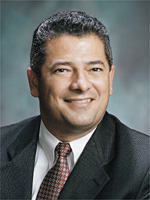
If the chatter among Florida charter school supporters is any indication, expect to see proposed legislation next spring that calls for equitable funding for charter schools and the return of charter authorizers who are independent from public school districts.
“This is a forced marriage that needs counseling,’’ joked Ralph Arza, a former Florida legislator who now serves as the governmental affairs director for the Florida Consortium on Public Charter Schools.
More than 100 charter school operators and advocates, who met Wednesday during the 16th Annual Florida Charter School Conference in Orlando, also want more streamlined applications and sanctions against districts that drag out the appeals process.
The way it works now, some applications call for thousands of pages of documentation, said Collette Papa of Academica, a charter school management company with about 100 schools in Florida. If a district denies the application, the appeals process can take anywhere from three to six months, Papa said. If the charter school wins approval, often it’s too late to hire teachers, secure a site and recruit students in time to open the same year, she said.
Papa was part of a 7-member panel that included Mike Kooi from the Florida Department of Education’s Office of Independent Education and Parental Choice, Pamela Owens of Charter Schools of Boynton Beach, Marvin Pitts of Mavericks in Education in south Florida, Gene Waddell of Indian River Charter High School in Vero Beach and Tim Kitts, who operates five Bay Haven Charter Academy schools in Panama City.
The panel discussion anchored a town hall meeting that kicked off the two-day conference. It was sponsored by the consortium and led by Arza, who served in the Legislature between 2000 and 2006 and helped pass education laws including former Gov. Jeb Bush’s A++ plan.
Since that time, Arza said, the state has slowly chipped away at the heart of school choice reforms.
Not giving charter schools a dedicated funding source for facilities forces them to use money earmarked for education to pay for buildings, he said. Giving the district the sole authority to approve and deny applications also seems to be a conflict of interest, he added. Districts, in a sense, are competing for the same students and dollars.
“If Burger King had to go to McDonald’s to open up, what would happen?” Arza said. “There needs to be a separate voice.’’
Florida created such an authorizing board, the Florida Schools of Excellence Commission, in 2006. Two years later, the First District Court of Appeal ruled the commission unconstitutional.
Kitts, of Bay Haven Academy, said looking more at what role universities can play could be a way to revive the independent authorizing board. But Kooi, who helped draft initial legislation for an independent authorizing board, cautioned that any proposed constitutional amendment would require the approval of 60 percent of Florida voters.
“Frankly, I think that’s impossible,’’ he said, adding his department is working on ways to make the overall application and renewal process easier for charter schools.
Operators and advocates touched on other issues they want addressed, like how cities and counties use zoning laws to limit charter schools, and getting access to unused district facilities.
Some also suggested they get more involved at the community level to help change rules – and minds.
“You’ve got to get people elected to your school boards,’’ Kitts said. “You’ve got to get out there and get that controlling interest.’’
Parents are particularly effective when it comes to spreading the message of choice, said Pitts, deputy superintendent for Mavericks.
“If you do not get the parents to fight with you or even for you, you have a lesser chance,’’ he said. “Districts – if you are a management company – they don’t want to hear from you.’’



[…] The redefinED blog reports creating an independent panel to review charter school applications is a top legislative priority of the Florida Consortium of Public Charter Schools. Charter school leaders gathered in Orlando for an annual conference this week. […]
[…] Read more about Florida Charter School Conference and a review of the panel discussion here. Filed Under: Uncategorized Terms of Use Contact Copyright 2012 ACH Finanical ; Powered by Thriving Interactive, LLC jQuery(document).ready(function($) { $("#rotator").cycle({ fx: 'fade', timeout: 4000, speed: 1000, pause: 1, fit: 1 }); }); […]
When using such a solution, you will be asked to talk about the events that affected you in the
year, marriage, new baby, move to a new house, started college, changed employment status, etc.
6) Easy export and import:- A tax preparer can easily import W-2,
Schedule D, Trial balance and Year-end balance, as well as
forms like child’s form 8615 and K-1 data
from 1041, 1120S, and 1065 are easily exportable.
For a common judgment creditor lien to outrank an IRS lien the lien needs to get recorded before the IRS’s lien is recorded, and be a “Choate” lien; which means it is a final lien circumstance, and that lien specifically lists what’s attached.